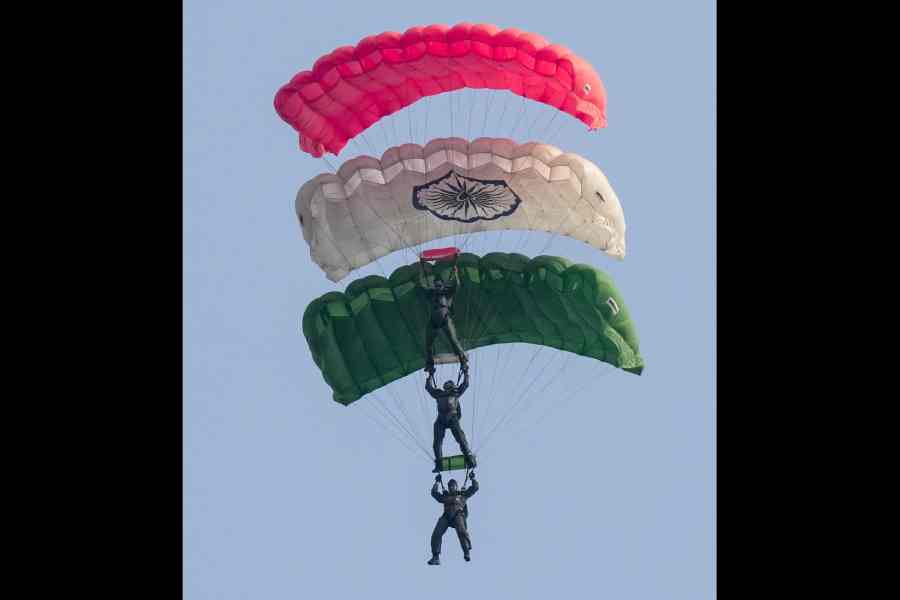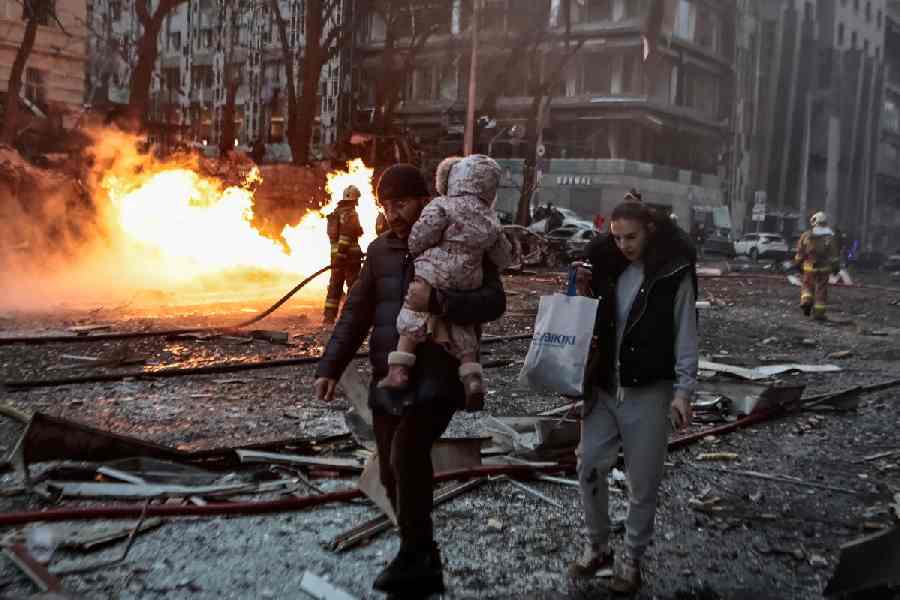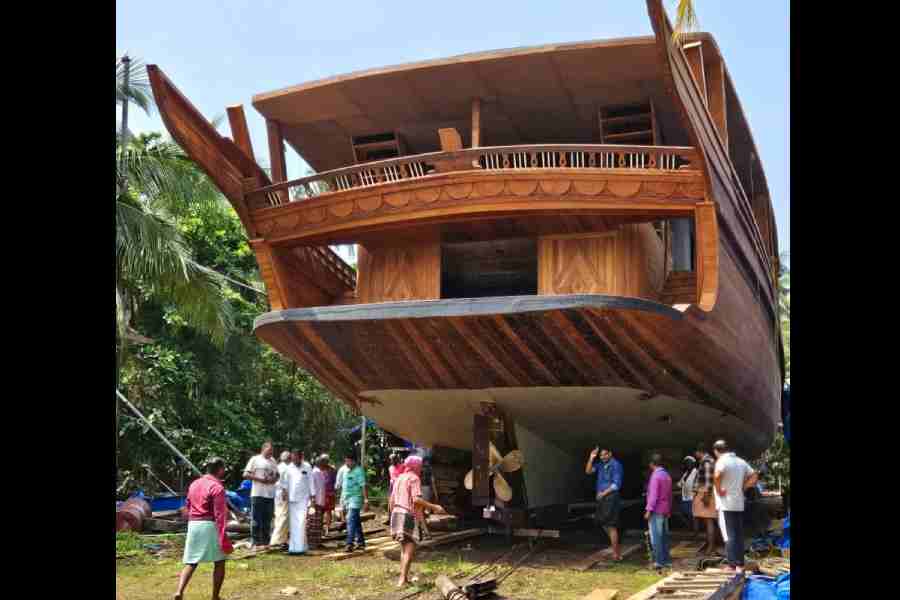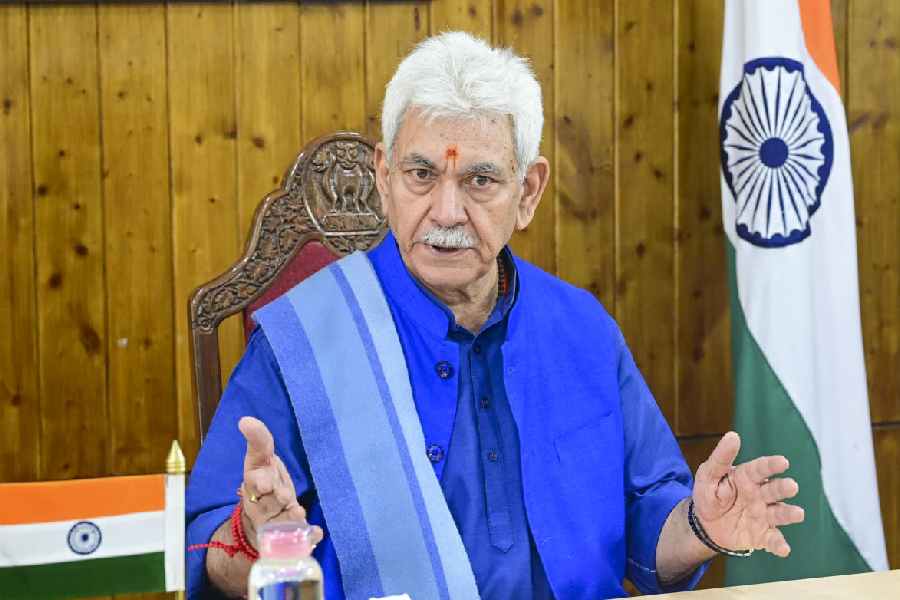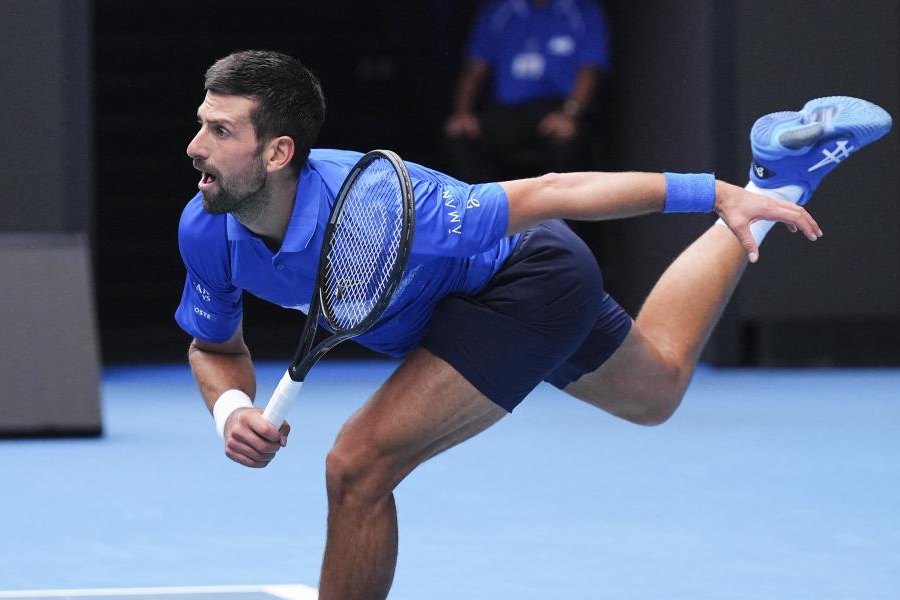India and Bangladesh will celebrate Vijay Divas on Monday but the two neighbours’ scale of participation in each other’s events will not match that of the previous five decades, reflecting the strain in ties since the ouster of Sheikh Hasina’s government.
Vijay Divas or Victory Day celebrates the surrender of 93,000 Pakistani soldiers to the joint forces of the Indian Army and the Mukti Bahini on December 16, 1971, paving the way for the birth of Bangladesh.
A delegation of about 10 each — made up of war veterans and serving officers — from the Bangladeshi and Indian armed forces arrived in Calcutta and Dhaka, respectively, on Sunday for Monday’s event.
“The sizes of the (Bangladeshi and Indian) delegations taking part in the Vijay Divas celebrations in Calcutta and Dhaka (respectively) had always been 50-plus, and included the spouses of some of the war veterans. This time, the size is between 15 and 17 (including the spouses),” a source in the Bangladeshi armed forces said.
Despite the lower turnout from Bangladesh, the Eastern Command has put together a mega show. It will be attended by Bengal chief minister Mamata Banerjee and governor C.V. Ananda Bose.
The programme in Calcutta will begin with the laying of a wreath in the presence of the war veterans from Bangladesh in the morning.
The day’s chief attraction, however, will be the “military tattoo”, featuring equestrian feats by army riders, a fly-past by army combat helicopters, combat manoeuvres by army aviators, a display of kalari payattu (a traditional Indian martial art), a dog show and an advanced robotic mule display.
A similar wreath-laying ceremony will be held at the national monument in Savar on Dhaka’s outskirts. Several socio-cultural programmes will be held across Bangladesh and will be attended by leaders from political parties.
“There used to be a ceremonial march-past in Dhaka, which will not be held this time,” a source said from Bangladesh.
“This government doesn’t believe in the ideals of the Liberation War…. They are observing Victory Day but it seems they are organising the programmes just for the sake of continuity.”
People from various sections of Dhaka society told The Telegraph that the interim government led by Muhammad Yunus appeared more focused on celebrating Hasina’s fall on August 5 this year than remembering December 16, 1971.
Most prominent members of the interim government have described the day of Hasina’s ouster as the “day of actual independence”.
“India and its role in our independence in 1971 are intertwined…. But there seems to be an attempt to downplay the Indian role by reducing the scale and scope of the Victory Day celebrations,” the Dhaka source said.
The source predicted that most of the speeches by interim government members on Monday would focus more on August 5.
“Look at Yunus’s address to the nation today…. It was so different from the contents of Hasina’s address — she used to fondly recall India’s role in our freedom struggle,” the source said.
Hasina on Sunday mounted another blistering attack on Yunus, accusing him of leading an “undemocratic group”.
“This undemocratic group led by the fascist Yunus has no responsibility towards the people,” she said. “They are taking power and obstructing all public welfare work,” she added. “They are secretly supporting the anti-independence radical communal forces. The lack of sensitivity of the leaders of this government, including the fascist Yunus, towards the Liberation War and its history is proven in every step they take.”
New Delhi-Dhaka ties have suffered after Hasina’s fall with Bangladesh witnessing an unprecedented groundswell of anti-India sentiments, endorsed by several key members of the Yunus regime.
The negativity towards India peaked after New Delhi expressed concern about the safety of minorities in Bangladesh following the arrest of Hindu monk Chinmoy Krishna Das on November 25.
Against this backdrop, there had been uncertainty till about a week ago whether the two countries’ war veterans would participate in each other’s Vijay Divas celebrations.
Multiple sources told this newspaper that the Bangladesh interim government had for months sat on the invitation from the Eastern Command, which organises the event in Calcutta, triggering speculation that Dhaka was not keen on sending its delegation of war veterans.
The situation changed after Indian foreign secretary Vikram Misri’s visit to Dhaka for the Foreign Office Consultations on December 9. “During a meeting between Misri and Touhid Hossain, his counterpart, the Indian convinced the Bangladeshi side to continue with the tradition of the two countries sending their delegations to each other’s Vijay Divas celebrations,” a source said.

